 Petzlover
Petzlover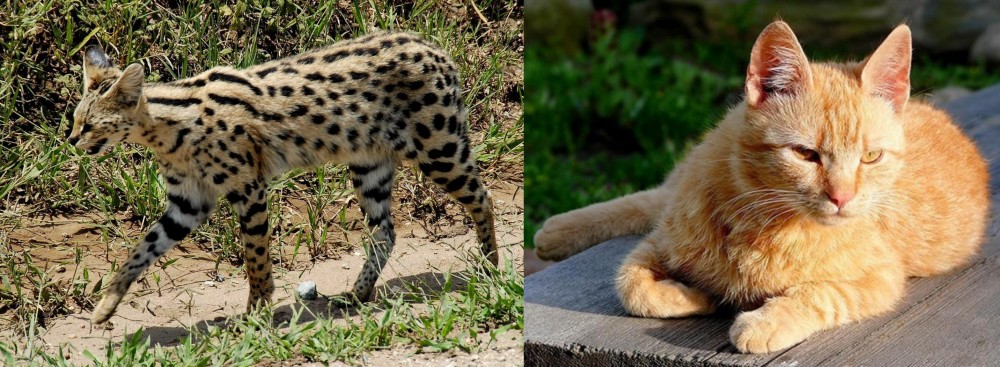 African Serval is originated from South Africa but Brazilian Shorthair is originated from Brazil. African Serval may weigh 8 kg / 18 pounds more than Brazilian Shorthair. Both African Serval and Brazilian Shorthair has same life span. Both African Serval and Brazilian Shorthair has same litter size. Both African Serval and Brazilian Shorthair requires Low Maintenance.
African Serval is originated from South Africa but Brazilian Shorthair is originated from Brazil. African Serval may weigh 8 kg / 18 pounds more than Brazilian Shorthair. Both African Serval and Brazilian Shorthair has same life span. Both African Serval and Brazilian Shorthair has same litter size. Both African Serval and Brazilian Shorthair requires Low Maintenance.
 The African Serval is a wild cat that hails from Africa. You’ll see them on Africa’s savannas where there is tall grass and reeds, preferably near water.
The African Serval is a wild cat that hails from Africa. You’ll see them on Africa’s savannas where there is tall grass and reeds, preferably near water.
If you want to own a serval cat, you have to check whether you require licenses and permits as they are particularly difficult to rehome once you have owned one. Humans have kept them since ancient times, but they are not domesticated cats as such.
Breeding servals arrived in the United States many decades ago. Breeders have also crossed serval cats with domestic cats to produce hybrids, one of which is the Savannah cat.
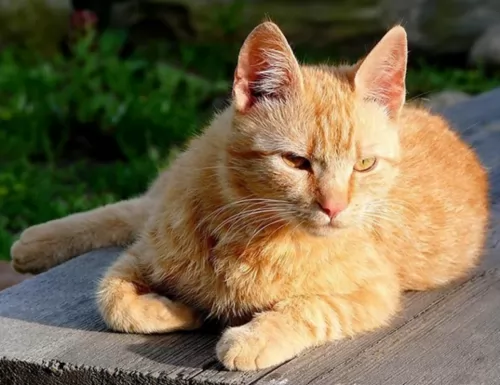 This attractive purebred cat is the first cat from Brazil to get international recognition.
This attractive purebred cat is the first cat from Brazil to get international recognition.
It is amazing that this cat goes back to the streets of Brazil as a feral cat. Centuries ago, when the Portuguese arrived in Brazil, they brought cats with them.
It was in the 1980s that a Brazilian cat breeder wanted to transform certain street cats into purebred cats and the Brazilian Shorthair emerged from these efforts. In 1998, the World Cat Federation gave the cat ‘approval breed’ status.
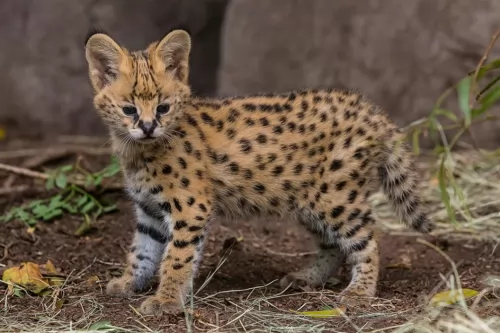 The Serval is a medium to large-sized cat that stands at between 54–62 cm in height and weighs in the region of 9–18 kg.
The Serval is a medium to large-sized cat that stands at between 54–62 cm in height and weighs in the region of 9–18 kg.
Some people think its a cat that looks similar to a Cheetah and this is because it also has a small head. It is known for its large ears which are black at the back with a large white dot. The attractively patterned coat is both spotted and striped with black against a golden/tawny shade.
These wild cats make a number of different noises - high pitched cries to growls, spitting sounds and purring. Another well-known feature with the cat is its particularly long legs. The tail has some black rings and it is black-tipped. The eyes of the Serval are a brown/greeny color.
The Serval cats will only come together for mating and then they resume their solitary lives. Gestation lasts for roughly 73 days after which up to 6 kittens can be born. In captivity, a Serval can live to be about 20 years of age.
The Serval is an active cat night and day. They are solitary animals not known for strong social interactions with humans but they can be playful with the few humans he gets to know.
People need to always know that owning a wild pet like this comes with risks. Not only that, a Serval wants to mark its territory and while you may provide a litter box, it's not to say he will use it.
They are able to bond with humans to some extent, more so if they were hand-fed from early on. They bond with one person and can form an affectionate relationship with that one person.
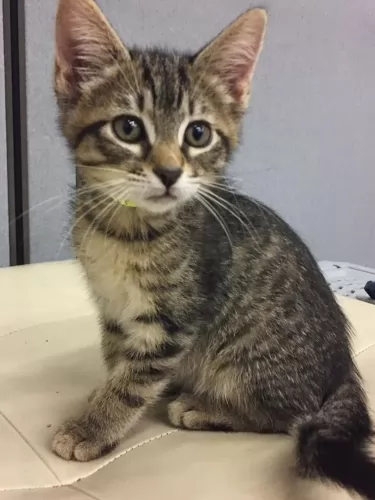 The Brazilian Shorthair is a purebred, medium to large sized cat that can weight between 5 nd 10kg. He is a thick-set cat that is muscular and strong and elegant to look at. The short coat comes in a variety of colors and patterns such as grey, black, orange, white and tan. The coat doesn’t require much grooming, but it is always beneficial to your cat to gently brush him to remove any excess hair there is. This cat has got such beautiful expressive eyes that you feel as if he wants to communicate with you sized cat
The Brazilian Shorthair is a purebred, medium to large sized cat that can weight between 5 nd 10kg. He is a thick-set cat that is muscular and strong and elegant to look at. The short coat comes in a variety of colors and patterns such as grey, black, orange, white and tan. The coat doesn’t require much grooming, but it is always beneficial to your cat to gently brush him to remove any excess hair there is. This cat has got such beautiful expressive eyes that you feel as if he wants to communicate with you sized cat
This is an adaptable cat that is able to adjust to the lifestyle you provide him with. He is an outgoing, intelligent, and inquisitive cat and enjoys the company of his human family, whether that includes children and other pets.
He gives a lot and expects lots of attention back from his humans. He is an inquisitive cat and loves to be going on his own adventures exploring.
He loves life and won’t enjoy a lifestyle where he is expected to lie around most of the day. He is intelligent and can learn tricks, and even though he is an elegant looking cat, he likes being active, spending time outdoors, and putting his hunting skills to the test.
 The African Serval is a wild animal and should be left in the wild.
The African Serval is a wild animal and should be left in the wild.
However, if you do decide to bring one into your home as a pet, they aren’t recommended for homes with young children or for a first-time pet owner.
Their play is rough and they like to use their teeth and claws during play. If the child gets hurt, then in typical unfair human fashion, the Serval is the one who suffers. They are capable of making good pets though but it is not recommended.
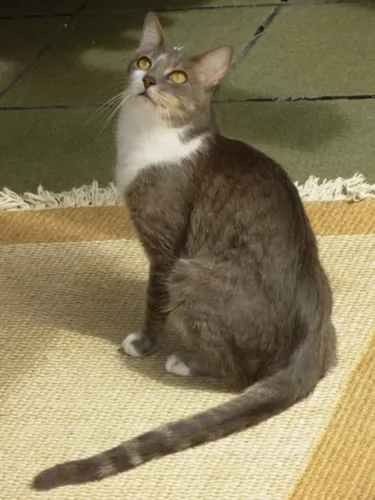 The Brazilian Shorthair makes a great choice for a loyal feline companion and he is a good looking cat too. They love human contact and love spending time with their human family, getting on well with the children in the home as well as other pets.
The Brazilian Shorthair makes a great choice for a loyal feline companion and he is a good looking cat too. They love human contact and love spending time with their human family, getting on well with the children in the home as well as other pets.
They don’t shed a lot either and therefore require little grooming. They’re adaptable pets too and become used to their different environments, loving to explore new places and even meeting new people.
They’re intelligent and can learn a few tricks that you’d normally teach a dog. As an intelligent cat, it loves to be challenged.
With so much going for him, no wonder the friendly, adaptable Brazilian Shorthair cat is such a popular breed as a domesticated house cat.
 The Serval is a wild cat so in the wilds it eats prey such as frogs, birds and reptiles. They are known for leaping high into the air to catch prey but they will also burrow into holes to get prey out.
The Serval is a wild cat so in the wilds it eats prey such as frogs, birds and reptiles. They are known for leaping high into the air to catch prey but they will also burrow into holes to get prey out.
You should try to provide your Serval pet with some whole prey. Do research on the food of Servals because you will need to offer your wild pet a feline supplement. There are also formulated pelleted food, but this shouldn’t form the bulk of his food but rather be a supplement to his meats. Choose a variety of meats such as chicken, mice, turkey, beef, duck as well as rabbits and birds.
If you keep a serval, it is imperative that it has large outdoor areas to roam in. They’re nocturnal animals, so they become more active at night. They’re used to living near streams in the wild so some kind of pool will be required for him, possibly even a fish pond where he can catch his own fish.
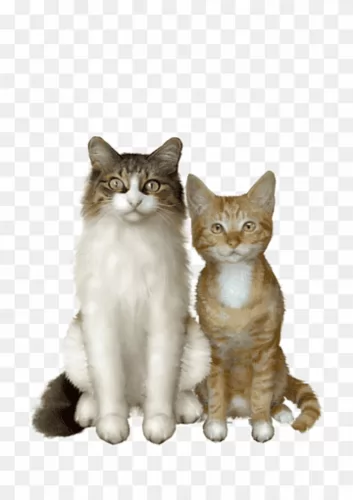 The Brazilian Shorthair has a short coat and won’t require too much grooming, although a gentle brush once a week is enjoyable. It becomes a bonding time with his owner and it keeps the coat free from dust and loose hairs.
The Brazilian Shorthair has a short coat and won’t require too much grooming, although a gentle brush once a week is enjoyable. It becomes a bonding time with his owner and it keeps the coat free from dust and loose hairs.
Check inside your cat’s mouth and make sure that all his pearly whites are just that. Sometimes a rotten tooth that he can’t tell you about can be a tremendous course of discomfort and pain. Also, check inside the ears for dirt and infection.
You can learn to clean the inside of the ears yourself but if you don’t want to do it, your vet or pet groomer can do these things for you – clip the nails of your pet, check the teeth for dental disease and check inside the ears.
Cats are carnivores, so they require animal protein for good health. Wet or dry commercial manufactured cat foods are super convenient and the best ones are excellent for your pet.
If you feel clueless about what to feed your cat, speak to your veterinarian who will guide you on the right food to give your pet. Certainly, your cat will need meat to get the nutrients he so badly needs.
The amount of food your cat needs to eat each day will depend on his age, weight, and activity levels. You want to get the correct amount of food right as obesity is a common health issue with cats and can contribute to a shorter life span. Always make sure your cat has access to fresh, cool drinking water.